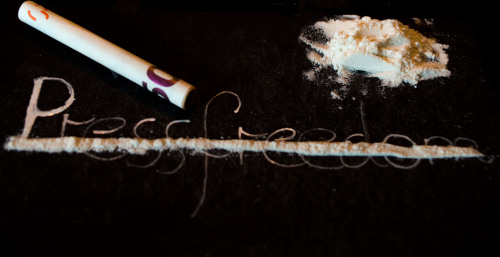#freedom of the press
Cocaine destroys Freedom of the Press!
Do not condemn the user. Condemned the nations that lead the Drug War!
They are to blame for all the deaths, like Ruben Espinosa..
Legalize Drugs!
http://www.taz.de/Drogenpolitik-in-Amerika/!5066074/
Post link
Cocaine destroys Freedom of the Press
The War on Drug must end!
https://www.freitag.de/autoren/goggo-gensch/der-tod-des-ruben-espinosa
Post link

Twitter recently re-activated conservative commentator Jesse Kelly’s account after telling him that he was permanently banned from the platform.
While some might be infuriated with what happened to Kelly’s Twitter account, we should be wary of calls for government regulation of social media and related investigations in the name of free speech or the First Amendment.
Companies such as Twitter and Facebook will sometimes make content moderation decisions that seem hypocritical, inconsistent, and confusing. But private failure is better than government failure, not least because unlike government agencies, Twitter has to worry about competition and profits.

The apparent abduction, and probable murder, of the prominent Saudi journalist Jamal Khashoggi at the Saudi consulate in Istanbul on Oct. 2 unmasked the ugly despotism behind the reformist image of the kingdom’s crown prince, Mohammed bin Salman.
Less noticed, however, is the way this scandal revealed a long-running rivalry between the two countries that directly butted heads at the outset: Turkey and Saudi Arabia.
This is a story that goes back to the 18th century. Then, much of what we call “the Middle East” today, including the more habitable part of the Arabian Peninsula, was part of the Ottoman Empire, ruled from Istanbul, then called Constantinople, by a cosmopolitan elite of mainly Turks and Balkan Muslims, including Bosnians and Albanians. The Hejaz, the western region of the Arabian Peninsula that included the holy cities of Mecca and Medina, was revered for religious reasons, but it was a backwater with no political or cultural significance.
In the 1740s, in the most isolated central area of the Arabian Peninsula, called Najd, a scholar named Muhammad ibn Abd al-Wahhab emerged with a fiery call for the restoration of “true Islam.” Wahhab soon allied with a chieftain called Ibn Saud—the founder of the Saudi dynasty.
The First Saudi State they established together grew in size and ambition, leading to a big massacre of Shiites in Karbala in 1801 and the occupation of Mecca in 1803. The Ottomans crushed the Wahhabi revolt in 1812 via their protectorate in Egypt, and Wahhabism retreated to the desert.
Another tumult in Hejaz occurred in 1856 when the Ottomans, thanks to the influence of their British allies, introduced another heretical “innovation”: the banning of slave trade, which was then a lucrative business between the Africa coast and the Arabian city of Jeddah. At the behest of angry slave traders, Grand Sharif Abd al-Muttalib of Mecca declared that Turks had become infidels and their blood was licit. As we learn from the chronicles of Ottoman statesman Ahmed Cevdet Pasha, Turks’ sins included “allowing women to uncover their bodies, to stay separate from their fathers or husbands, and to have the right to divorce.”
These were the changes introduced during the Tanzimat, the great Ottoman reform movement in the mid-19th century by which the empire imported many Western institutions and norms. The Tanzimat allowed the Ottoman Empire to ultimately become a constitutional monarchy with an elected parliament—something still unimaginable in the absolute monarchy of Saudi Arabia. It also allowed the rise of the modern Turkish Republic, where secular law became the norm, women gained equal rights, and democracy began to grow.
Today, admittedly, Turkey became the home of jailed journalists, crushed opponents, hate, paranoia, and a new cult of personality that has been called “Erdoganism.” Yet Erdogan and his fellow Islamists are still Turkey’s Islamists—that is, compared with Saudi Arabia’s elites, they are still operating within a more modern framework that reflects a milder interpretation of Sunni Islam.
It was on a Wednesday morning (June 1, 2016) that the 20-year-old ‘top Israeli terror suspect’, Meir Ettinger, was released from custody after leading the arson attack on the Dawabsheh home in Duma village.
An attack in which the 18-month-old baby was burned alive on his peaceful sleep, while both of his parents died in hospital. As for Ahmad, their 5-year-old son, he spent months in hospital recovering from third degree burns on 70% of his body.
The Israeli terrorist was released chargeless from that day on and what was most ironically symbolic is that he was released on what is known to be “Children’s Day”.
Anyways, the question that lingers on my conscience is: why do we hear of such news only from local media?
It has been remarkable how, since the Holocaust, in particular, the hoopoe – that is to say, the “Israeli national bird” – sings everyone’s pen to sleep. We are living the claimed freedom of speech era, yet whenever it comes to the occupying Israel, the mass media is seen to be taking a nap. No one could ever say anything sensitive or critical about Jews unless they were “anti-Semetic”.
“So…we have what the people are interested in, and human interest stories, which is what humans are interested in, and the public interest, which no one is interested in.”
“Except the public, sir,” said William, trying to keep up.
“Which isn’t the same as people and humans?”
“I think it’s more complicated than that, sir.”
“Obviously. Do you mean that the public is a different thing from the people you just see walking about the place? The public thinks big, sensible measured thoughts while peoplerun around doing silly things?”
“I think so. I may have to work on that idea too, I admit.”
“Hmm. Interesting. Ihave certainly noticed that groups of clever and intelligent people are capable of really stupid ideas,” said Lord Vetinari.
Terry Pratchett, The Truth
My 21st/22nd #Inktober2018 #drawing. “Drain” and “Expensive” were the prompts. I drew them as one #illustration.
#KhashoggiCoverUp #Bribe
#FreedomOfThePress #KhashoggiMurder
#JusticeForKhashoggi #FreePress
#inkdrawing #sketch #inktober #wapo #journalist #journalism #khashoggi #art #protest #resist #WashingtonPost
Post link



